Two of my friends bought awesome tai chi panda shirts at Yaxiu, the tourist filled indoor market in Sunlitun. The seller originally asked for 270 kuai per shirt, and they got the price down to 70 kuai ($10) each. Good deal, right? No. Those shirts—the I <3 BJ, the Obamao, the I Climbed the Great Wall etc—should retail for 20 kuai AT MOST. Chinese people are able to get them for 10 kuai; the lowest price I, a foreigner, got was 15 kuai ($2.20).
This brings up two valuable lessons: 1. In a tourist filled place, such as Yaxiu or Silk Street, the vendors are looking for suckers. They see you as a foreigner, and try to gage how ignorant you are. When I try to buy those shirts, vendors start at 300 kuai, and then when I insist on 10 they quickly move to 200 “Okay, okay I give you good price” then 100, “I only give this price to you” then 70, “Last price, really the last price” and eventually go to 15 (“I lose money”). Know that vendors will mark up prices sometimes by twenty times what you should pay. Try to find out how much an item retails for before you purchase it.
2. Do not pay what you are willing to pay. $10 for a shirt is a good deal, but in China $10 goes so much further than in America. Most meals I ate were under $3, the subway is 2 kuai ($0.29, while in New York it’s $2.25), a forty minute cab ride is $6, etc. You need to think in terms of how much an item should retail for in China and not how much the item would retail for in America.
Now, techniques for bargaining.
If you speak Chinese, use it. This will get you a better price, and they probably will like you more. First, delay saying how much you are willing to pay until the dealer lowers the price as much as possible. Repeatedly ask, can you make it cheaper? Then, once the dealer insists that you name your price, do not give your maximum price; you will work your way up to that, in five or ten kuai increments. If you are in doubt as to how much you should pay, start lower than you might think is okay. So no matter what, start low. If the seller accepts your price too quickly, you know you started too high.
When bargaining, I either act really interested or really disinterested. If I choose to act interested (usually if it’s a really nice item that’s more expensive), I can use the line, “I really like it but it’s too expensive. I’m just a student, I have no work.” They usually laugh in response, which lightens the mood, and then give me a better price. If I choose to act disinterested, I will shift my weight to the foot farthest away from them and look around at other places. I also walk away when the seller won’t give me a cheaper price. Chances are the seller will call me back with a better price, meaning the amount I offered was sufficient, just the seller wanted to get more money from me. If he or she does not call me back and if I still want the item, I’ll go back and offer a higher price.
A few other things:
-Once the seller starts sliding—45, 40, 35 while you’re at say 25—hold your ground. Do not meet them; they are about to meet you.
-When in a large place with a lot of merchandise, such as the Silk Market, I like to walk around the building first, seeing as much as possible, and then make my purchases. This way I know I’m getting the best stuff.
-At department stores sometimes you can bargain. You can ask for a student discount or say that you really like the item, but it’s too expensive and ask if it can be cheaper. A saleswoman offered me her employee discount after I said that.
-Sellers at Silk Street can be especially aggressive. Don’t ask for the price (since what the price they name is worthless anyway) unless you want to buy the item. If they think you are teasing them, they will get pissed off and scary.
I know some people have difficulty bargaining—they feel bad, think it’s amoral—but I don’t at all. The shopkeepers are trying to rip you off, and you are trying to save money. Think of bargaining as a way to reach a mutually satisfactory agreement. They will not accept a price that does not give them enough of a profit (therefore you are not ruining their livelihood, but adding to it), and you will not offer a price that you are not comfortable paying. You see, it’s perfect. So while in China, bargain frequently and feel good about it, knowing you’re doing China’s economy a service while meeting locals and practicing your Chinese. This is also a lesson in learning to justify buying a lot of shit.
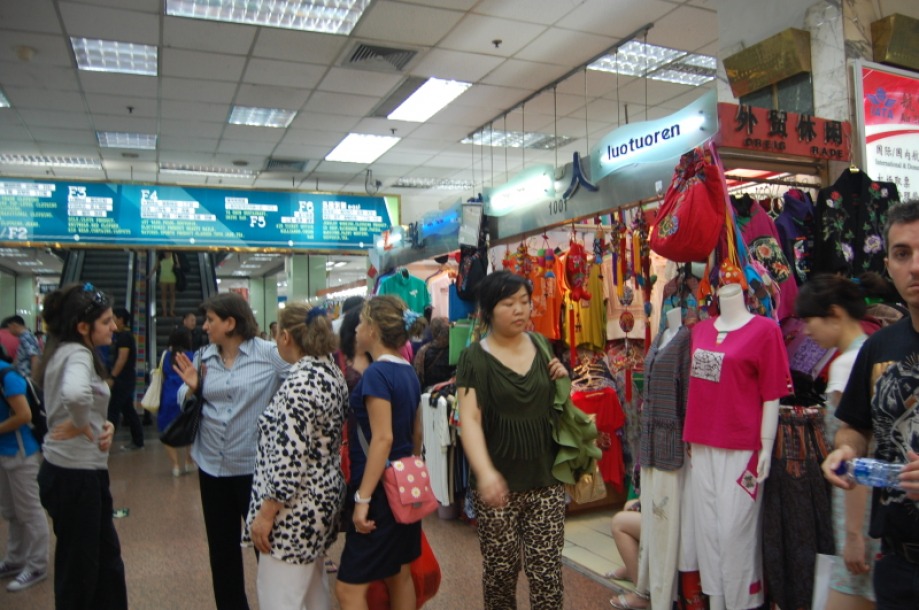
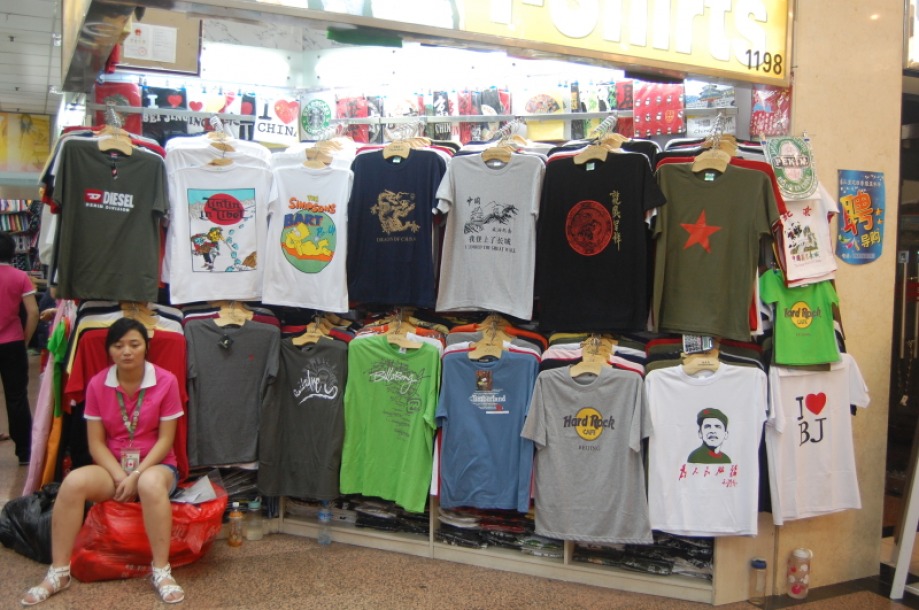
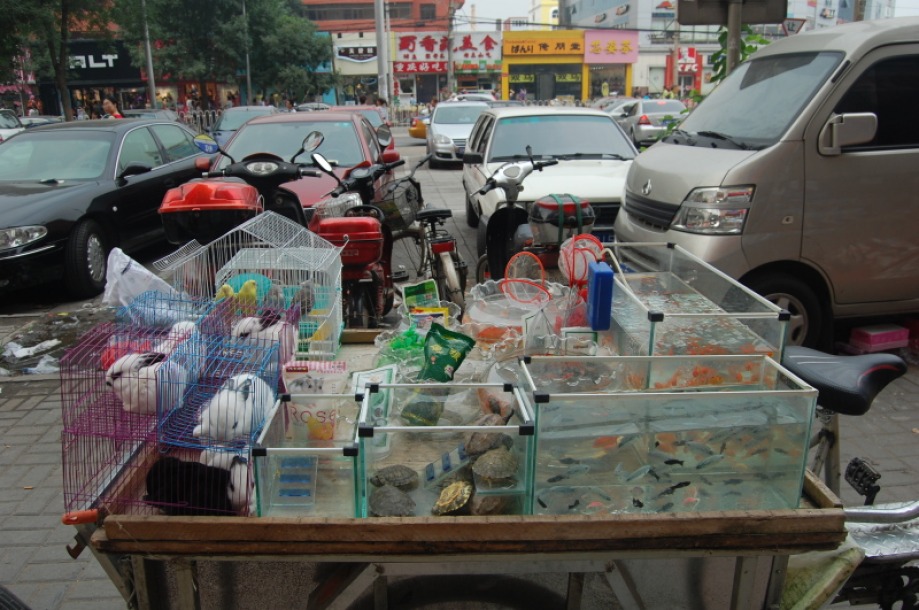
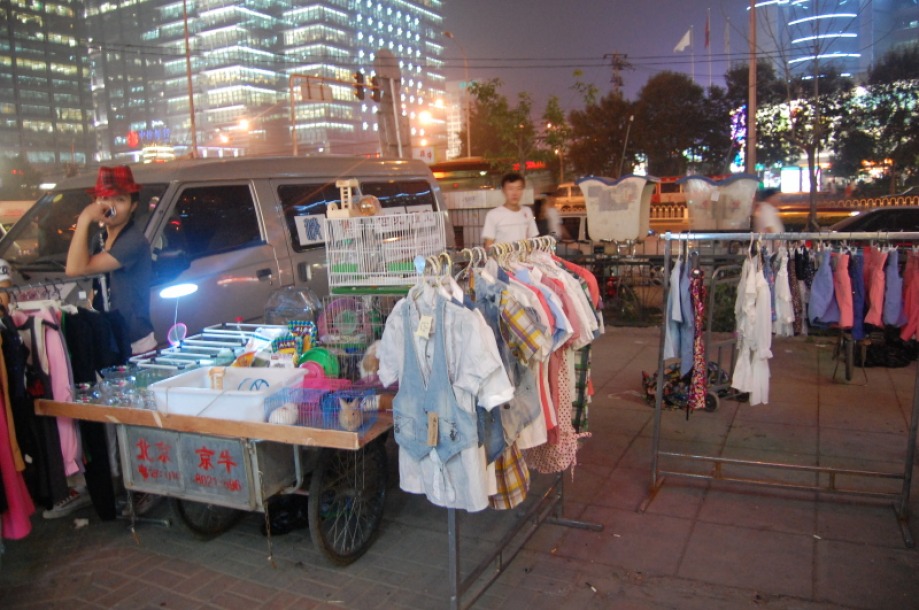
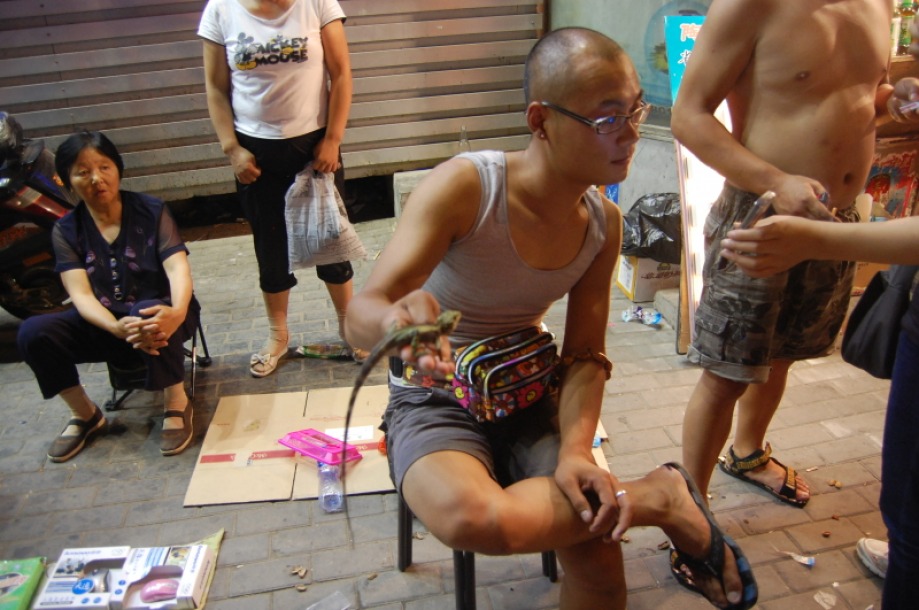

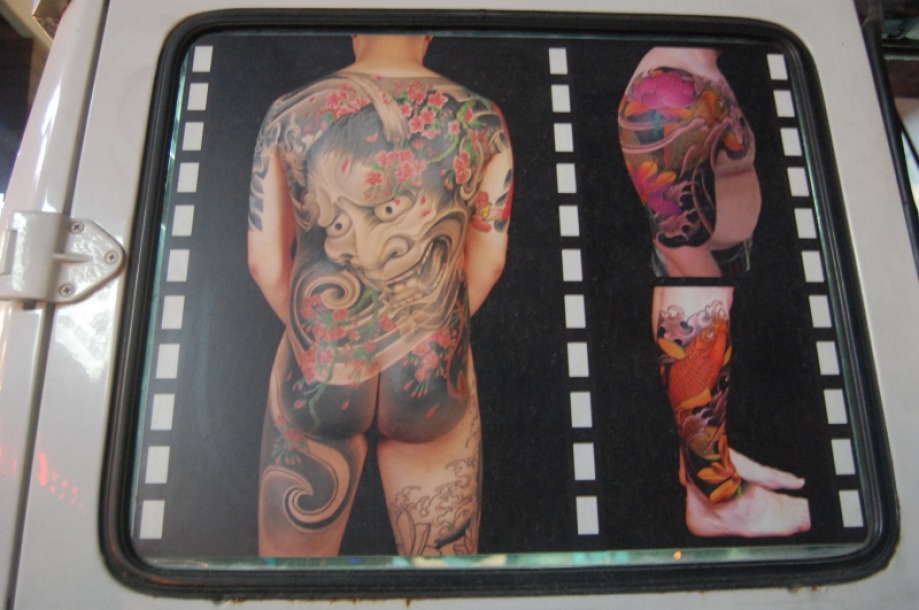
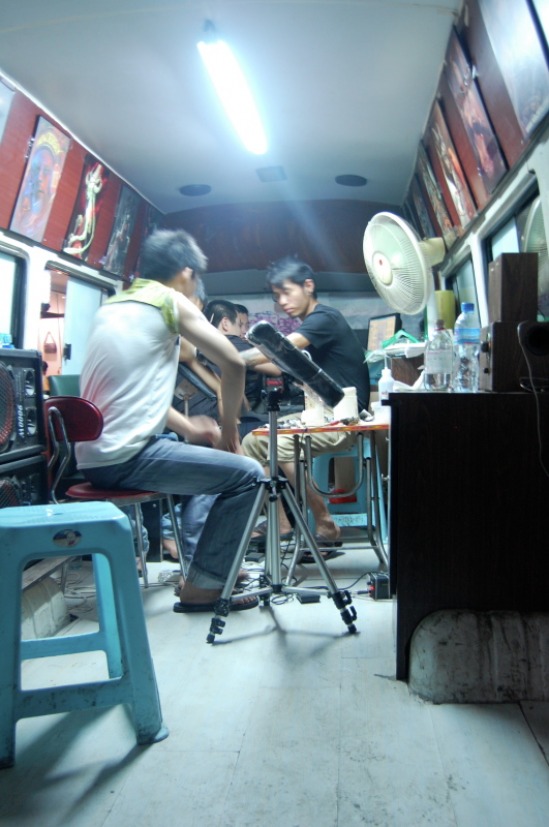
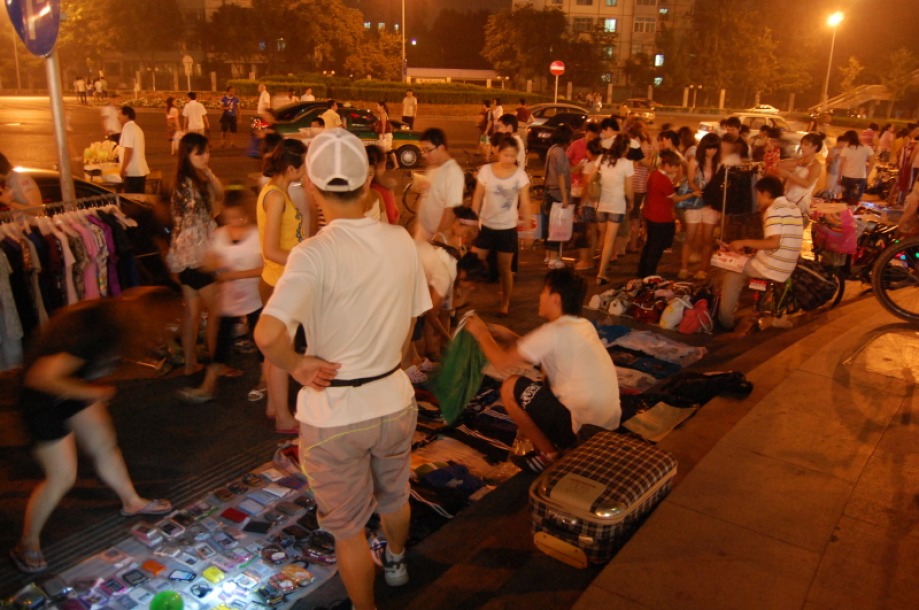
 RSS Feed
RSS Feed